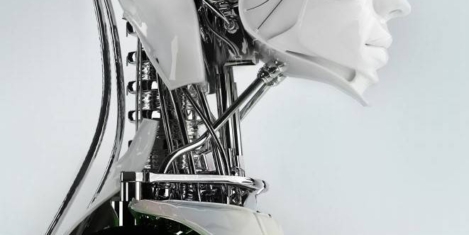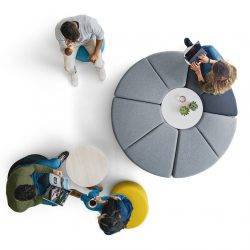October 26, 2017
Saudi Arabia announces plans for $500 billion mega city in region
 Following last week’s announcement that Toronto is to create a digital city along its waterfront, Saudi Arabia has unveiled plans to build a $500 billion ‘mega-city’ spanning parts of several countries. The plans announced this week are a response to the need for the kingdom to produce a more diverse economic base and will create a zone that will run on alternative energy and have its own legal system and employment laws. The region will be known as Neom, a name derived from terminology meaning ‘New Future’ and will span parts of Saudi Arabia, Egypt and Jordan along the Red Sea coastline as a 26,500 square kilometre development of previously untouched land (pictured). Plans inevitably include technologies such as driverless cars, drones and robots, and were unveiled by Crown Prince Mohammed bin Salman at the Future Investment Initiative in Riyadh this week. The zone is expected to cost around $500 billion (£380.5 billion) and will be powered entirely by renewable energy and focus on industries including energy, biotechnology, food, advanced manufacturing and entertainment.
Following last week’s announcement that Toronto is to create a digital city along its waterfront, Saudi Arabia has unveiled plans to build a $500 billion ‘mega-city’ spanning parts of several countries. The plans announced this week are a response to the need for the kingdom to produce a more diverse economic base and will create a zone that will run on alternative energy and have its own legal system and employment laws. The region will be known as Neom, a name derived from terminology meaning ‘New Future’ and will span parts of Saudi Arabia, Egypt and Jordan along the Red Sea coastline as a 26,500 square kilometre development of previously untouched land (pictured). Plans inevitably include technologies such as driverless cars, drones and robots, and were unveiled by Crown Prince Mohammed bin Salman at the Future Investment Initiative in Riyadh this week. The zone is expected to cost around $500 billion (£380.5 billion) and will be powered entirely by renewable energy and focus on industries including energy, biotechnology, food, advanced manufacturing and entertainment.





















 Three-quarters (74 percent) of HR managers have witnessed discrimination in the recruitment process – with a quarter (24.5 percent) calling it a regular practice; and less than a third of HR managers (32 percent) can confidently say they are unprejudiced themselves during the recruitment process. According to research from digital recruitment platform SomeoneWho, almost half (48 percent) admit bias impacts their candidate choice, while a further fifth (20 percent) said they couldn’t be sure. The research also found that female candidates face a number of stigmas when looking for work. One in 10 recruiters said they would avoid a female applying for a male dominated role. A further one in 10 said they’d be reluctant to recruit a recently married candidate, as they were more likely to go on maternity leave soon. Shockingly, a fifth of HR managers said they would overlook a pregnant candidate. One in 10 HR managers would be reluctant to hire someone with a thick accent. A further 10 percent said they’d be less likely to select candidates who attended a state school.
Three-quarters (74 percent) of HR managers have witnessed discrimination in the recruitment process – with a quarter (24.5 percent) calling it a regular practice; and less than a third of HR managers (32 percent) can confidently say they are unprejudiced themselves during the recruitment process. According to research from digital recruitment platform SomeoneWho, almost half (48 percent) admit bias impacts their candidate choice, while a further fifth (20 percent) said they couldn’t be sure. The research also found that female candidates face a number of stigmas when looking for work. One in 10 recruiters said they would avoid a female applying for a male dominated role. A further one in 10 said they’d be reluctant to recruit a recently married candidate, as they were more likely to go on maternity leave soon. Shockingly, a fifth of HR managers said they would overlook a pregnant candidate. One in 10 HR managers would be reluctant to hire someone with a thick accent. A further 10 percent said they’d be less likely to select candidates who attended a state school.
 With a plethora of reports around that generalise the behaviour of an entire generation of people, yet another exploration of the Millennial has to be approached with caution. But for this latest study, “The Millennial mindset: Work styles and aspirations of the most misunderstood worker”,
With a plethora of reports around that generalise the behaviour of an entire generation of people, yet another exploration of the Millennial has to be approached with caution. But for this latest study, “The Millennial mindset: Work styles and aspirations of the most misunderstood worker”, 








October 19, 2017
Future office and changing business of work debated at Workplace Trends
by Sara Bean • Comment, Coworking, Facilities management, Technology, Wellbeing, Workplace design
(more…)